BookKeeper Accounting
BookKeeper Accounting provides full‑stack double‑entry accounting with real‑time dashboards.
Learn moreBookKeeper AccountingBookKeeper Accounting provides full‑stack double‑entry accounting with real‑time dashboards.
Learn moreBookKeeper Accounting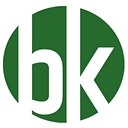
No reviews yet
BookKeeper Accounting provides full‑stack double‑entry accounting with real‑time dashboards.

No reviews yet
Quicken Home & Business provides full‑stack double‑entry accounting with real‑time dashboards.
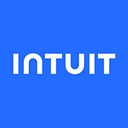
No reviews yet
QuickBooks Desktop Pro Plus provides full‑stack double‑entry accounting with real‑time dashboards.
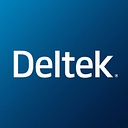
No reviews yet
Deltek Ajera Financial Management provides full‑stack double‑entry accounting with real‑time dashboards.

No reviews yet
Reckon Accounts Hosted provides full‑stack double‑entry accounting with real‑time dashboards.
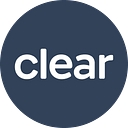
No reviews yet
ClearTax Books provides full‑stack double‑entry accounting with real‑time dashboards.

No reviews yet
Marg ERP 9+ Accounting provides full‑stack double‑entry accounting with real‑time dashboards.
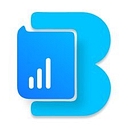
No reviews yet
myBooks Online Accounting provides full‑stack double‑entry accounting with real‑time dashboards.
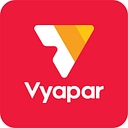
No reviews yet
Vyapar Desktop provides full‑stack double‑entry accounting with real‑time dashboards.
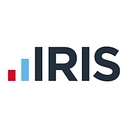
No reviews yet
IRIS Accounts Production provides full‑stack double‑entry accounting with real‑time dashboards.
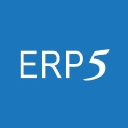
No reviews yet
ERP5 Accounting provides full‑stack double‑entry accounting with real‑time dashboards.

No reviews yet
FrontAccounting provides full‑stack double‑entry accounting with real‑time dashboards.

No reviews yet
LedgerSMB provides full‑stack double‑entry accounting with real‑time dashboards.

No reviews yet
ProfitBooks provides full‑stack double‑entry accounting with real‑time dashboards.

No reviews yet
Akaunting Cloud provides full‑stack double‑entry accounting with real‑time dashboards.

No reviews yet
Xledger Cloud ERP provides full‑stack double‑entry accounting with real‑time dashboards.

No reviews yet
Entry Pricing: $4
Cruxbee: Cloud Billing Software for small restaurants & cafes. Get a zero commission mobile POS & branded QR Menu that works on your phone. No expensive hardware required!
Managing business finances manually using spreadsheets or paper-based methods is time-consuming and prone to errors. Important details can slip through the cracks – like missed invoices or misrecorded expenses – when relying on manual bookkeeping. That’s why modern businesses rely on accounting software (also known as accounting apps or tools) to streamline their financial management. Accounting software automates repetitive accounting tasks, from recording transactions and reconciling bank accounts to generating invoices and financial statements. By replacing tedious manual work with digital tools, these systems improve accuracy, save time, and provide real-time visibility into a company’s financial health. They also support essential functions such as billing, expense tracking, payroll, budgeting, and tax compliance, making them indispensable for businesses of all sizes.
Accounting software is an application designed to help businesses manage their financial activities digitally. It allows you to record, organize, and track all your financial transactions (such as income, expenses, invoices, and payments) in one place. These programs automate many bookkeeping tasks, making it easier to reconcile accounts and generate financial reports. In short, accounting software replaces manual spreadsheets and ledgers with an efficient system that improves accuracy and saves time.
Accounting software addresses several pain points that come with managing finances by hand. It automates repetitive data entry and calculations, greatly reducing the risk of human error in financial records. This means fewer mistakes compared to using paper or spreadsheets, and no more lost invoices or forgotten expenses. The software also centralizes all financial information, so you can easily monitor cash flow, track budgets, and produce accurate statements without hours of manual work. Overall, it saves time, improves accuracy, and gives business owners better visibility into their finances.
Absolutely. Accounting software is very suitable for small businesses, and in many cases essential. In fact, many accounting apps are built with small business users in mind, offering user-friendly interfaces and affordable pricing. Using an accounting tool helps a small business owner keep their books organized without needing extensive accounting knowledge or a full-time accountant. It simplifies tasks like invoicing customers, tracking expenses, and preparing for tax time – tasks that can be hard to juggle manually when you’re running a small operation. By automating these processes, even a tiny company can maintain accurate records and focus more on growing the business instead of dealing with paperwork.
When evaluating an accounting tool, look for core features that match your business needs. Essential capabilities include invoicing (to bill clients and record income), expense tracking (to log purchases and receipts), and financial reporting (to monitor your profit/loss and cash flow). Bank integration is also important, so the software can automatically import transactions and help reconcile accounts. If you have employees, payroll features can save time; if you operate internationally, multi-currency support is useful. It’s also wise to consider ease of use and whether the software is cloud-based for anytime access. Finally, check that it offers good customer support and can integrate with other tools you use (for example, e-commerce platforms or CRM systems) to ensure a smooth workflow.
Yes, most accounting software can assist greatly with taxes. These tools track tax-related details automatically – for instance, calculating sales tax on invoices and categorizing expenses for tax deductions. They can generate financial statements and reports (like profit-and-loss statements and expense summaries) that make it easier to prepare your tax returns. Some accounting applications even include modules for tax filing or integrate with tax software, helping you handle tax forms and submissions more smoothly. By keeping all your financial data organized and up to date, accounting software reduces the chance of errors and stress when tax season arrives.
Reputable online accounting software is highly secure. Cloud-based accounting platforms typically use strong encryption to protect your data (both when it’s transmitted and when it’s stored), similar to banking security. They also provide features like two-factor authentication, regular data backups, and audit logs to keep your information safe. Providers of accounting tools invest in secure data centers and undergo security audits to prevent breaches. While no system is 100% foolproof, using a trusted accounting software service is far safer than managing financial data through unsecured spreadsheets or paperwork. As a user, you should also follow best practices – for example, using strong passwords and keeping your software up to date – to maximize security.